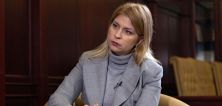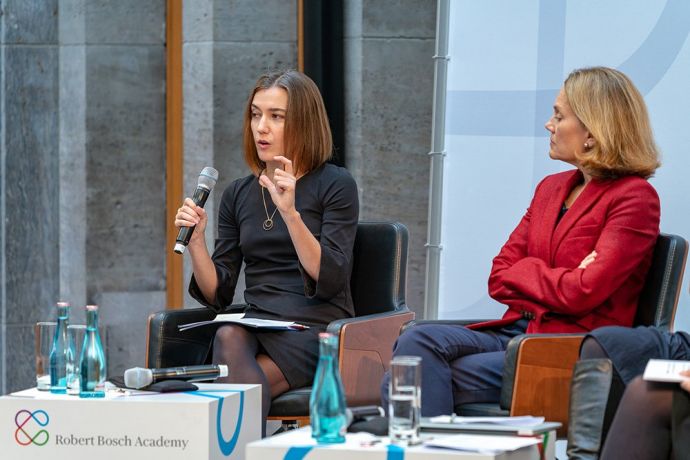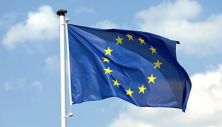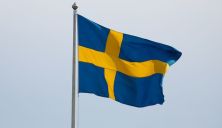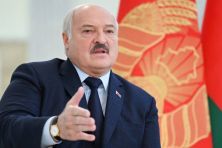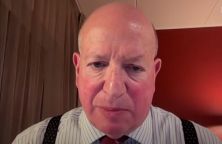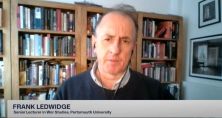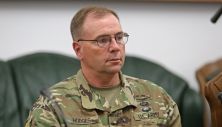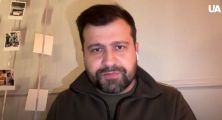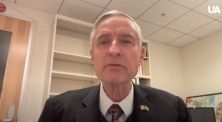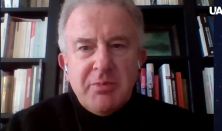Online Press Briefing with NSC Senior Director for Europe Amanda Sloat and Ambassador Julianne Smith, U.S. Permanent Representative to NATO. We have gathered key points for you:
MS SLOAT: In terms of the President’s agenda, he will travel first to the United Kingdom. While in London, the President will meet with King Charles at Windsor Castle and will engage with the climate finance mobilization forum – excuse me – which is focused on mobilizing climate financing in developing countries. He will also meet with UK Prime Minister Sunak to consult on a range of bilateral and global issues, which will mark the President’s fifth meeting with Prime Minister Sunak in as many months.
The President will then travel to Vilnius, Lithuania, to attend the NATO Summit. In advance of the summit, he’ll hold a bilateral meeting with Lithuanian President Nausėda and then will meet with his NATO counterparts and partners at the summit. This will certainly be a historic summit at a very important moment in history.
President and our Allies will be discussing a wide range of subjects ranging from strengthening NATO’s eastern flank to modernizing NATO’s deterrence and defense capabilities. Allies will also be demonstrating our continued unity and resolve in support of Ukraine, which hasn’t wavered, disproving President Putin’s expectation of fracturing Western unity – and we believe that the Alliance remains stronger and more united than ever.
After the summit, President Biden will give a major speech in Vilnius about the importance of supporting Ukraine and defending democratic values globally.
Ukraine remains democratic, independent, sovereign, and prosperous. And certainly from the U.S. perspective, we are committed ourselves as well as to working with allies and partners to continue providing the support Ukraine needs on the battlefield as well as helping them strengthen their military to increase their security over the long term.
President has spoken to that very directly and has said Ukraine would have to make reforms to meet the same standards as any other NATO country before they join. So there’s standards that the Alliance sets for all members, and the President made clear that Ukraine would need to make those reforms. And certainly everything that we are continuing to do now and will continue to do forward is working with Ukraine to ensure that they are able to do them.
And finally, we are continuing to coordinate closely with Ukraine, which has requested these munitions, and offered assurances that they would be using them responsibly. But at this stage, I don’t have anything further to announce on the question of DPICMs, and I also don’t have anything further to announce at this stage on ATACMS.
AMBASSADOR SMITH: The focus will be on reaffirming our support for Ukraine. There will also be a package of concrete deliverables both in terms of longer-term practical assistance on things like their military modernization and questions of interoperability. We’ll be working with them on enhancing their political relationship, and so there’ll be some developments there. You heard the secretary general today talk about the creation of a NATO-Ukraine Council, and we can talk in the Q&As about the significance of that if you are interested.
And then in the communique, we will be addressing Ukraine’s membership aspirations, and that is something that NATO Allies continue to work on. But it is not just restating Bucharest. It will look different than what we said in 2008, and we’ll have more to say on that when we get to the summit.
On deterrence and defense, essentially what we have there is the rollout of these new regional plans. It’s a generational shift for the Alliance to now have these three regional plans in place that will ensure that we can literally defend every inch of NATO territory. We’ll be focusing not only on these multi-domain plans, but we will also be focusing on the resourcing that’s needed to execute the plans, and that takes us to the defense investment pledge and the desire for Allies to say something about what follows the defense investment pledge from 2014, which comes to a close next year. And so we’ll have more to say about the 2 percent target and the fact that this will now be an enduring commitment and a floor, not a ceiling. And then we’ll have associated C2 changes that will reflect these new regional plans, and so we’ll be moving out with some news in that category as well.
We’ll have a handful of cyber security deliverables where the Alliance is moving out on strengthening its ability to either deter or prevent or respond to future cyber attacks.
And then secondly, I would mention that for the second time in NATO’s history we have the four leaders of the Indo-Pacific partners coming to the summit – our friends from Australia, New Zealand, Japan, and the Republic of Korea. They will be present in Vilnius, which is fantastic to have them present for this historic summit.
And then lastly, we will see where we are on Sweden. The trilat that took place yesterday in Brussels where the foreign ministers, the national security advisors, and the intel chiefs from Finland, Sweden, and Türkiye met with the secretary general was a constructive and positive meeting, and so we’ll see where we are when we get to Vilnius. You’ve heard the United States; our interest is in getting Sweden into the Alliance as soon as possible. We believe Sweden is ready to do so. It brings an enormous amount of capacity and clearly shares our values, and has certainly heard and responded to many of the concerns that our friends in Ankara have raised over the last year, so stay tuned on that front as well.
So without further ado, looking forward to your questions, and I’ll turn it back over to the moderator.
President Zelenskyy, if he opts to come to the summit as he has mentioned, will come to a summit and be well received, will see resounding support for his – Ukraine’s relationship with the Alliance, and will find himself holding a whole collection of concrete deliverables that signals a longer-term commitment to Ukraine from the NATO Alliance.
